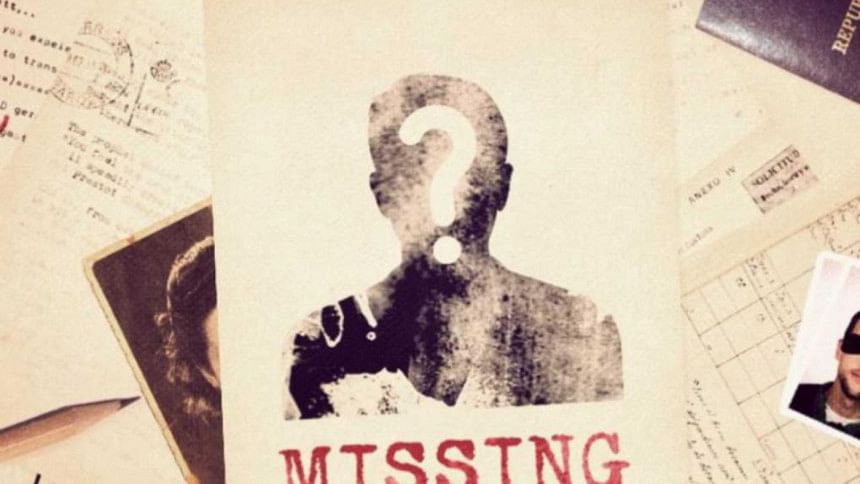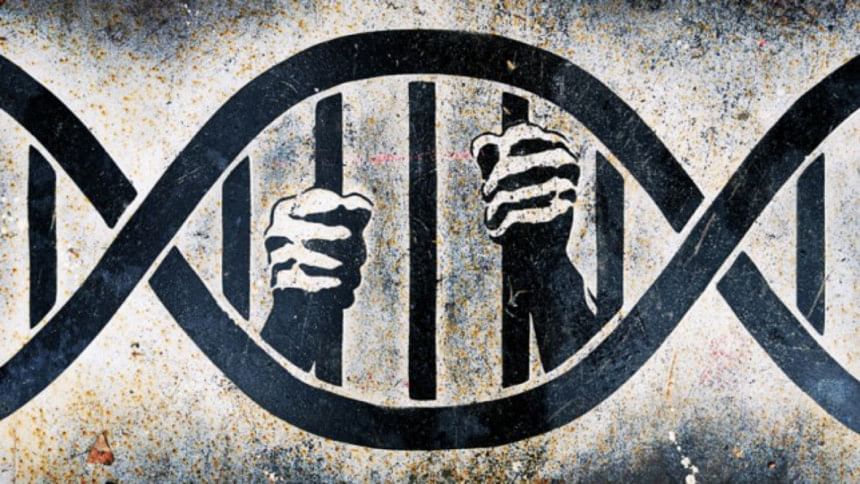Official version of our human rights and what the reality is

Having acceded to the United Nations Convention against Torture and other Cruel, Inhuman or Degrading Treatment or Punishment (UNCAT) on October 1998, Bangladesh was obligated to submit its initial State Report under Article 19 of the UNCAT to the UN's Committee against Torture (CAT) by November 4, 1999. But it took Bangladesh 20 years to comply—and only after the CAT sent a letter to the Bangladesh government on December 10, 2018, reminding it of its overdue initial report and about the possibility for the Committee to proceed with a review in its continued absence.
If the failure to hand in the report for 20 years wasn't demonstrative enough of the lack of importance placed on human rights by successive Bangladeshi governments, the lacklustre report that the current Awami League government finally submitted to the Committee on July 23, 2019, surely was. Not only did the government not respond to the numerous allegations of flagrant human rights violations made by various national and international organisations in their reports submitted to the UN, but it also pretended to be amnesiac to them.
This, along with the contents of several alternative reports prepared by multiple organisations submitted to the CAT, prompted the Committee to say that it was "concerned at information it received alleging the widespread and routine commission of torture and ill-treatment…by law enforcement officials for the purpose of obtaining confessions" in Bangladesh. These allegations include 1,335 people reportedly being extrajudicially killed by law enforcing agencies through crossfire between January 2014 and May 2019—since the enactment of the Anti-Torture Act in 2013—as the Human Rights Forum Bangladesh (HRFB) stated in its report to the UN, titled "Stakeholder's Submission to the United Nations Committee Against Torture". There were also the alleged deaths of 348 prisoners in jail custody during that time—among other human rights violations recorded by rights organisations, UN agencies and others.
These include the shooting of civilians, particularly knee-capping—such as in the case of Limon Hossain who was shot by a Rab team in the left leg, as well as the case of Shahadat Hossain who was similarly shot in the leg; the custodial deaths of Abdul Majid, who died in Jessore Central Jail on April 21, 2019, Md Ahraf Ali, who died on May 6, 2019 in the custody of the Dhaka Metropolitan Police's Detective Branch, and whose body bore marks of injury, according to forensic officials at Dhaka Medical College, as well as the deaths of many others that were never investigated.

In its 2015 annual report, the National Human Rights Commission of Bangladesh (NHRC,B) similarly reported that 70 percent of the complaints it received "alleged a human rights violation of law enforcement agencies and about half of all complaints concerned torture allegations." Despite that, the CAT was provided information by the Bangladeshi delegation about the filing of only 17 cases under the act against members of the law enforcing agencies. Hence the Committee, in its report, expressed "concern" as "further information about these cases" were "not publicly available and was not provided by the delegation", and "no case filed under the act has been completed since its enactment."
Article 12 of the Convention requires states to ensure "competent authorities proceed to a prompt and impartial investigation, where there is reasonable ground to believe that an act of torture has been committed in any territory under its jurisdiction." However, as the Washington-based Robert F Kennedy Human Rights organisation said in its report to the UN, "a fundamental shortcoming of the Act" has been that "it places primary investigative authority with the police and other LEAs [law enforcing agencies] that often are the very perpetrators of the alleged acts of torture or ill-treatment."
As a result, the Committee expressed concern with "information it received that mechanisms established by the State party to receive and investigate complaints of torture and ill-treatment by officials are not leading in practice to meaningful accountability for perpetrators." And that "police officers frequently refuse to register claims of torture or disappearance brought by victims or family members," while those "who seek to complain about or publicise incidents of torture reportedly are frequently subjected to harassment, threats and retaliation by the perpetrators." And we have seen numerous cases like that in recent times.
Take for example, the case of journalist and member of human rights organisation Odhikar, Mohammad Abdul Jaium. Jaium, after actively campaigning against torture, extrajudicial killings and enforced disappearances, "was arbitrarily detained and charged under the Digital Security Act, 2018." Or the case of the arbitrary detention of Odhikar's Secretary, Adilur Rahman Khan, who was arrested in August 2013 without an arrest warrant. The torture and detention of Mahmudur Rahman, editor of the now defunct daily Amar Desh, who remained detained for three and a half years until being released on bail in November 2016. The detention and alleged torture last year of photographer and founder of Drik and the Pathshala South Asian Media Institute, Shahidul Alam. The detention of university students who were protesting against the existing quota system in public sector jobs. And many more such cases of harassment and silencing of human rights defenders, journalists and dissidents, which sadly continues to be a problem.
When analysing why there haven't been regular independent inquiries, one cannot help but place some blame on the NHRC,B. Section 12 of the NHRC,B Act, 2009 grants the Human Rights Commission a wide mandate to protect and promote rights in the country. According to Section 17(2) of the NHRC,B Act, the Human Rights Commission has the right to investigate any matter anytime the government fails to respond to its request for a report. However, according to HRFB, "the Commission very rarely takes a strong stance regarding alleged human rights violation by security forces." For instance, following widespread reports of extrajudicial killings, enforced disappearances and torture in relation to the December 2018 elections, the NHRC,B Chairman Kazi Reazul Haque said at a press conference in January 2019 that there were no incidents of human rights violations during the recent elections.
It is perhaps because of such unbelievable statements that the UN Committee on Economic, Social and Cultural Rights concluded, also in 2018, that the NHRC,B is not sufficiently independent and lacks transparency in the selection of its constituent members. Which is why it has failed to play any significant role in upholding human rights in the country and holding those responsible for their violation to account.
Another systemic weakness lies in the fact that the definition of torture in the Torture and Custodial Death (Prohibition) Act 2013 fails to incorporate some fundamental concepts enshrined in Article 1 of the UNCAT. For example, the act includes "mental or psychological torture" without defining them, leaving a clear loophole that can be, and often is, exploited.
Then there is the fact that the law fails to provide necessary instructions on how to proceed with an investigation if the limit of 120 working days stated in it is exceeded without the investigation being completed. Rights organisations say there are other issues in the act that need to be sorted out. And the CAT, similarly said in its report that it is "gravely concerned" that the Torture and Custodial Death (Prevention) Act 2013 is not being effectively applied in practice.
One reason why implementation has been a major challenge is the fact that Section 167 of the Code of Criminal Procedure (CrPC), 1898 allows a magistrate to place a suspect in interrogative custody, known as remand, during which the suspect could be questioned without the presence of his or her lawyer. According to HRFB, "most custodial abuses reportedly occur during remand."
Hence the CAT in its report said that the government should "ensure that law enforcement officials receive and apply in practice training in forensic, non-coercive investigation methods." And it should "ensure all law enforcement officials are aware that it is unacceptable to engage in torture and ill-treatment to pressure criminal suspects to confess to crimes"—which is the primary method currently in use because of the absence of modern forensic techniques.
The questioning of suspects without the presence of their lawyer also violates Article 33(1) of Bangladesh's Constitution which guarantees the right to consult and be defended by a legal practitioner of his or her choice. The same Article also provides safeguards against arbitrary arrest and detention, and prohibits the detention and arrest of a person without being informed of the reason for such arrest and requires any arrestee to be produced in court within 24 hours—which is also required as per Section 61 of the CrPC.
However, these requirements are often ignored quite blatantly using the Special Powers Act 1974. Which is why the CAT reminded the government that Article 2, Paragraph 2 of the UNCAT states that, "no exceptional circumstances whatsoever, whether a state of war or a threat of war, internal political instability or any other public emergency, may be invoked as a justification of torture." This, certainly, is a very important reminder, given that we have seen the government invoke all types of "exceptions" recently to forget its obligation to uphold the human dignity and rights of its citizens.
However, these are but a few major issues that illustrates the poor state of human rights in Bangladesh. The full list of concerns of the CAT paints an even grimmer picture, particularly when one compares it with the government's unimpressive initial report submitted to the UN, the purpose of which, it seems, was to somehow play down the gravity of these concerns.
But the fact is that torture of a human being—along with many of the other allegations of human rights violations brought forth against various government agencies and personnel—is one of the most barbaric acts that can ever be carried out. It should have no place in any civilised society in this day and age. The fact that our government has failed to recognise that, to the extent necessary to completely root out the practice of torture is a huge travesty—one which has greatly tarnished the image of our country on the world stage.
The report that the government submitted to the UN mostly talked about the legal safeguards that Bangladeshi citizens have on paper, and the constitutional guarantees that defend them from torture and other serious human rights violations. The law minister, however, when presenting the report, failed to respond to any of the allegations of rights violation that the UN said it was concerned about. Nor did he mention any intention the government has to investigate those allegations and to take action against the perpetrators of such serious crimes. This shows a clear gap between what the law says and what is actually being practiced, as well as the difference between the government's version of how it views human rights and what the reality is.
Eresh Omar Jamal is a member of the editorial team at The Daily Star. His Twitter handle is: @EreshOmarJamal.

 For all latest news, follow The Daily Star's Google News channel.
For all latest news, follow The Daily Star's Google News channel. 



Comments